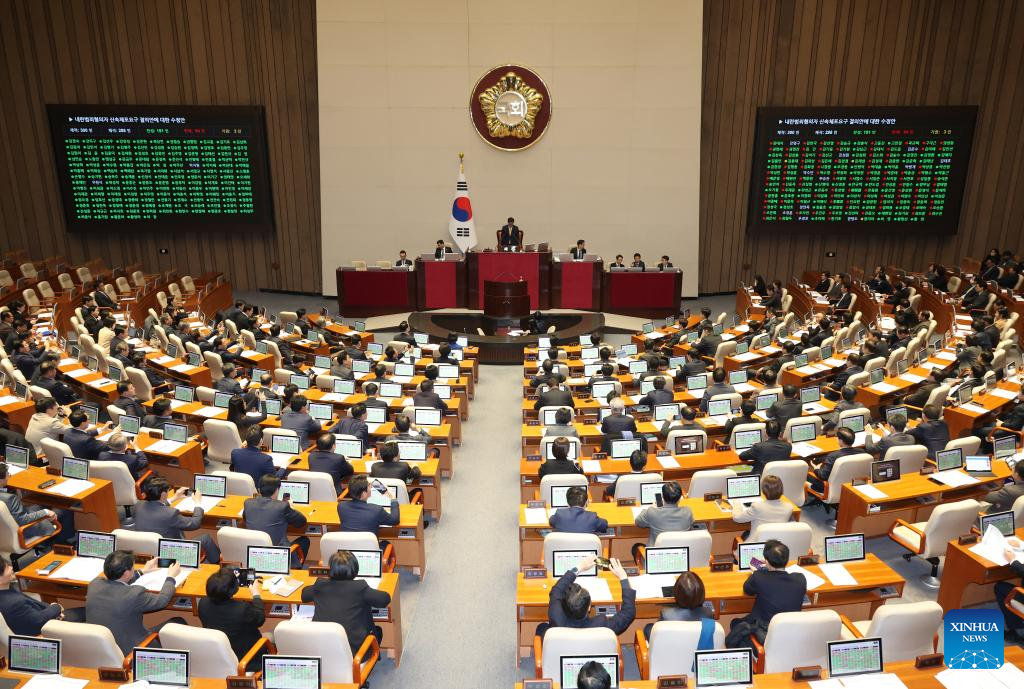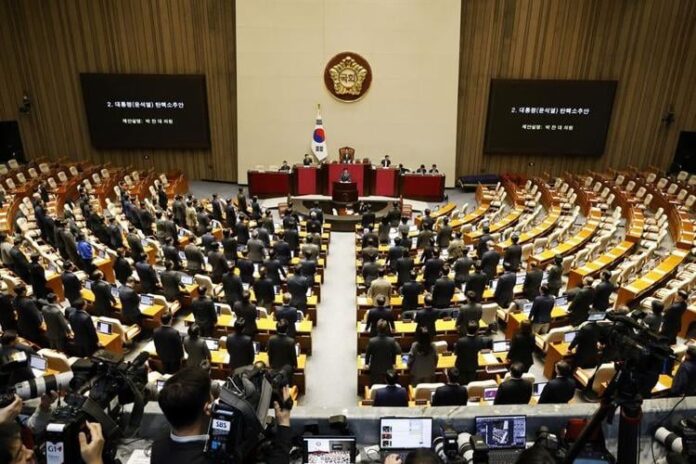The bill aims to hold accountable not only President Yoon but also former Defense Minister Kim Yong-hyun, Army Chief of Staff Park An-su, and other officials involved in the martial law command imposed on December 3. The ruling People Power Party participated in the vote, despite earlier hesitations regarding the bill’s direction.
The resolution from the main opposition party, the Democratic Party of Korea, claims that President Yoon intended to subvert the National Assembly and could be considered the ringleader of the alleged insurrection. This assertion underscores the gravity of the situation and the increasing tensions within South Korean politics.

In parallel, the Corruption Investigation Office for High-ranking Officials (CIO) has sought a preliminary arrest warrant for former Defense Minister Kim over his role in the martial law declaration. The investigative body aims to ensure accountability as it navigates through this politically charged landscape.
As South Korea grapples with these developments, the implications for President Yoon’s administration and the broader political climate remain uncertain. The National Assembly’s actions reflect a growing demand for transparency and accountability in governance.



























